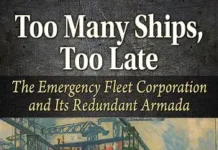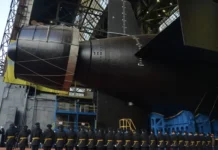
By Tom Sharpe*
Since the beginning of last month, the war on drugs in the Caribbean has taken a significant turn. Navies have been involved in countering this trade for a long time but on Sept 1, “intercept, board and disrupt” became “blow up”.
Since then there have been eight strikes, 32 deaths and two captures. Vessels struck have ranged from fishing boats to narco-submarines – five took place close to the Venezuelan coast, two in more central Caribbeanwaters and one 90 miles south of the Dominican Republic. All were in international waters.
Two obvious questions emerge; is this legal and will it work? As ever, the answers are far from obvious.
To call this a policy shift would be an understatement. Those of us who contributed militarily to this task over the years knew the score, and it involved a destroyer and a tanker (back when we had enough to spare), a helicopter with a sniper and then close integration with various agencies such as the Joint Interagency Task Force South or the Dutch Caribbean Coast Guard in Curacao and so on. You got your intelligence from them, didn’t ask too closely where they were getting it from, and off you went to intercept and board the vessel of interest. The helicopter and sniper were there for you if they tried to outrun you – the sniper would put a big-bore bullet through their engines in that case – and you had a US Coast Guard Law Enforcement Detachment embarked to provide powers of arrest (and turn up in US court later, perhaps for quite long periods of time, which would have been a pain for us).
Did these sorts of interdictions work, in terms of stopping Americans being able to obtain drugs? A Rand think-tank report written way back in 1988 (the phrase the “War on Drugs” is very old – most people date it to 1971 but the idea is much older) discussed “the effects of increased military participation in drug interdiction”.
“Interdiction affects the use of illicit drugs by raising the risks faced by drug smugglers. Removals of drugs (i.e. seizures) do not of themselves lessen the availability of drugs, at least not of marijuana and cocaine, for which there is a large established base of production, importation, and distribution. But as the risks of losing drugs and having agents arrested rise, smugglers incur higher expenses. These in turn produce higher import prices, which eventually raise the price paid by the drug user. Price increases are the principal means by which interdiction can affect use, although some users may be relatively insensitive to price.”
That feels a little like “no”. Of course, not even trying would make things much easier for the smugglers. You still lock your house when you leave, not because it makes you immune to theft, but because it makes it harder.
So does calling them terrorists and giving “weapons free” orders to the military change this? Is the deterrent effect sufficient to strangle the trade? The answer to this is, of course not. The oceans are vast, as are the resources and skills of the people involved in this trade. That there has been one interdiction a week since the first one was destroyed suggests they are not being deterred, certainly. And besides, it’s never the key players that get blown apart, it’s normally just coerced hands with families under threat.
From the Rand report again, “a striking feature of the interdiction agency performance data is their low rate of successful identification. The Coast Guard success rate with boardings is extremely low, largely because drug vessels are so lacking in distinguishing features. Only 4 per cent of boarded vessels turned out to be carrying drugs. When prior intelligence indicated the possibility that a vessel was carrying drugs, the fraction of successful boardings rose, but still only to about 12 per cent”.
In other words a huge amount of drugs remain undetected and therefore undestroyed.
The four per cent figure brings me to the second question about legality. As ever with international maritime law, things are not black and white, but I don’t know a single maritime lawyer, or naval officer, over here who thinks it’s OK to just blow up boats. That could just be my echo chamber, or “UK-EU wetness” as it would be called were you to try and debate this online, but it’s clear that not everyone is happy over there either. That the two survivors of the narco-submarine strike of Oct 16 were repatriated and not tried has led critics of the strikes to say it’s because there is no legal mandate under which to try them. So you can kill them but not try them. Defenders of the scheme say it avoids costly legal fees and helps smooth relations with the countries to which they have been returned.
In the middle of all this, Admiral Alvin Holsey, a four-star officer of 37 years’ service and the head of the US Southern Command, announced his retirement from the position last week, just one year into the role and during major activities in his command. I don’t know, maybe he wants to spend more time at home, but when you hear reports that previous meetings had seen the war secretary berate him for not being aggressive enough and him offering to resign then and there, then add it to everything else, it’s clear that there is a problem.
Other reports over this emerge of extreme disquiet amongst the Judge Advocate General’s (JAG) Corps – the US Navy’s legal department. The beating they took when Pete Hegseth took over – three senior people were fired and their posts downgraded – means that apparently inaction is now common. And yet one of their jobs as an organisation is to provide impartial, legally grounded advice. If they feel they can no longer do this, then we have a problem broader than the one outlined here.
There is legal precedent, however. Barack Obama’s drone strikes between 2009 and 2017 saw non-state actors labelled “combatants” and targeted. There was a JAG-led discussion back then over “Article II presidential powers and the authorization for use of military force”. As I said at the top, these things are never black and white. Maybe a key difference was that those strikes weren’t plastered online like a video game.
Jack Goldsmith, a professor of law at Harvard has views on this. “One big difference between this task and, say, the CIA interrogation and black site programme in the 2000s, is that Trump is not keeping it super-secret. Rather, as he often does when he is breaking law or norms, he acts openly and without shame or concern. It is a very effective method for defanging the public impact of law and norms – at least in the short run,” he said.
As ever, there is more going on here than just chasing drugs, no matter how important that may be. Part of this is to apply pressure to Nicolas Maduro, the Venezuelan president, and his “cartel masquerading as a government”. Activity there is only going to go one way over the coming months particularly if they insist on buzzing US warships in their F-16s. I really wouldn’t advise that.
Indications are that land and air routes are being used more so you can say it’s working at sea but not overall. Some say this is aimed at providing Donald Trump with a mid-term presidency boost to make him look strong in front of his base. Not to jump into a deep US rabbit hole but a decent percentage of that base voted for him on the “no more wars” ticket that he vocally trumpets elsewhere. It would be interesting to know their views on all this.
In summary, I think this latest turn in the war against drugs is probably illegal – the likelihood of killing innocents is too high. I also don’t think it will work – the trade will just shift and overall levels of this horrible problem will be maintained. On the one hand I lament our own legal system for not being aggressive enough at sea, particularly in the pursuance of dark fleet ships and Russian oil smugglers. on the other, I think this is a step too far. Besides, if there is one law of the sea that is immutable it’s that the solution to crimes that take place offshore – drugs, migration, piracy, smuggling and so on – rarely lies there. The solution, in fact, lies inland and involves breaking up the business models of those who profit from it. That’s what broke the Somali pirates in the noughties and would break the dark fleet if the sanctions were better applied. Massive application of force at or from the sea rarely works on its own, unless accompanied by a comprehensive plan across all environments. A billion dollars’ worth of munitions only slowed the Houthis down; it didn’t stop them.
In the meantime, we watch what is probably an illegal game of whack-a-mole play out as if it were a video game, not totally sure we are killing the right people but pretty sure it won’t work anyway. Senior officers resign whilst the JAG sit on their hands hoping it will all go away but knowing that history’s judgment rarely does.
On Tuesday the US Coast Guard in the Eastern Pacific announced they had seized more than 45 tons of cocaine since August, using traditional methods of board and search. Are they about to switch tactics too?
*Tom Sharpe is a former Royal Navy officer with real-world command experience in Caribbean drug interdiction and contact with Russian submarines in the High North.
This article was first published in The Daily Telegraph and republished with the author’s permission.



